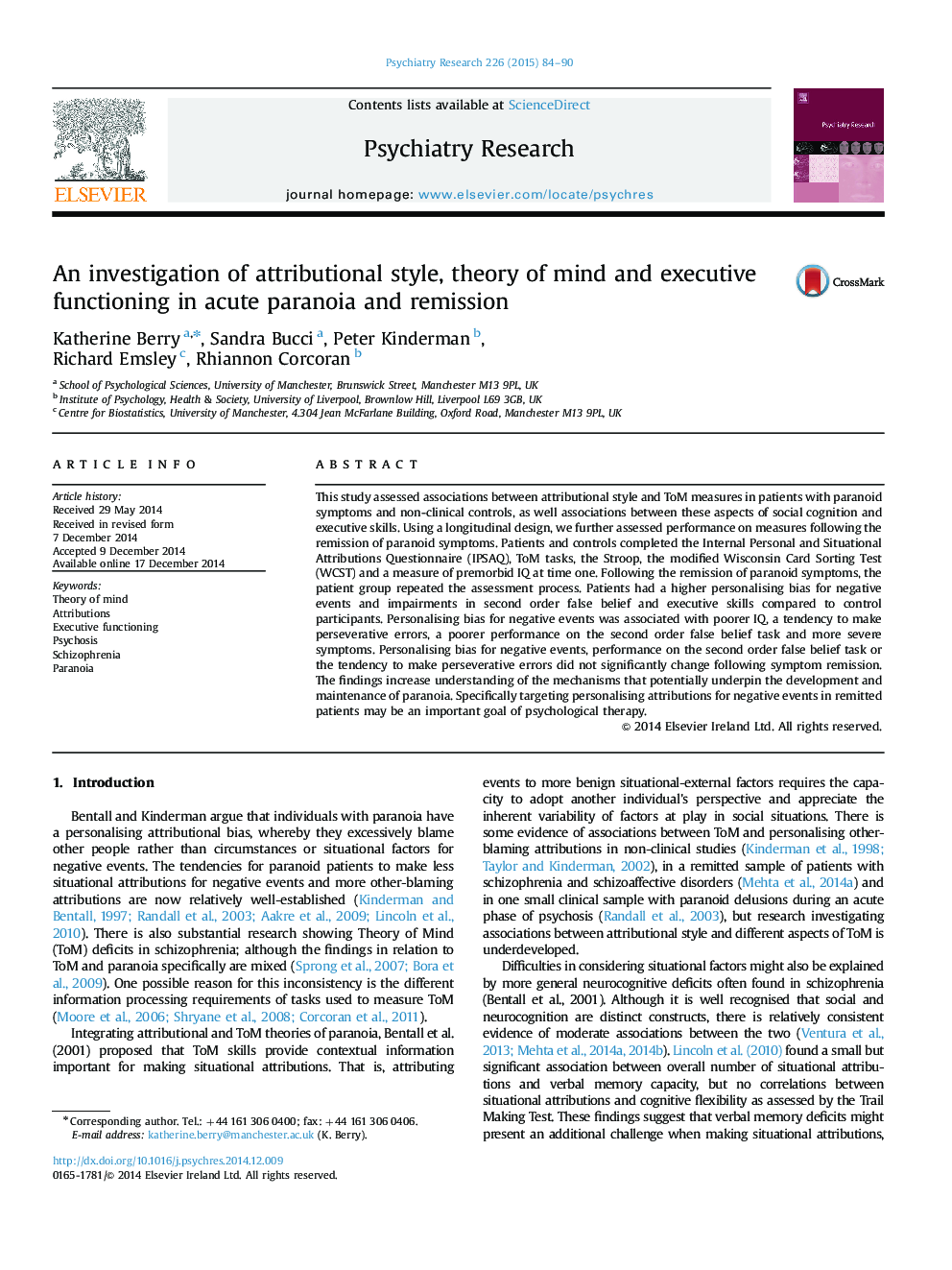| Article ID | Journal | Published Year | Pages | File Type |
|---|---|---|---|---|
| 10303773 | Psychiatry Research | 2015 | 7 Pages |
Abstract
This study assessed associations between attributional style and ToM measures in patients with paranoid symptoms and non-clinical controls, as well associations between these aspects of social cognition and executive skills. Using a longitudinal design, we further assessed performance on measures following the remission of paranoid symptoms. Patients and controls completed the Internal Personal and Situational Attributions Questionnaire (IPSAQ), ToM tasks, the Stroop, the modified Wisconsin Card Sorting Test (WCST) and a measure of premorbid IQ at time one. Following the remission of paranoid symptoms, the patient group repeated the assessment process. Patients had a higher personalising bias for negative events and impairments in second order false belief and executive skills compared to control participants. Personalising bias for negative events was associated with poorer IQ, a tendency to make perseverative errors, a poorer performance on the second order false belief task and more severe symptoms. Personalising bias for negative events, performance on the second order false belief task or the tendency to make perseverative errors did not significantly change following symptom remission. The findings increase understanding of the mechanisms that potentially underpin the development and maintenance of paranoia. Specifically targeting personalising attributions for negative events in remitted patients may be an important goal of psychological therapy.
Related Topics
Life Sciences
Neuroscience
Biological Psychiatry
Authors
Katherine Berry, Sandra Bucci, Peter Kinderman, Richard Emsley, Rhiannon Corcoran,
